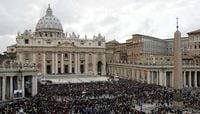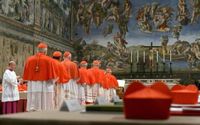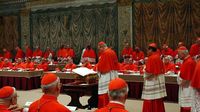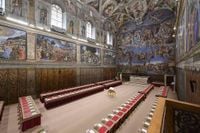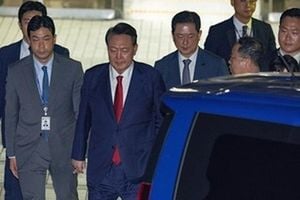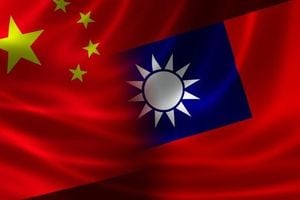On May 7, 2025, the long-anticipated Conclave to elect the next Pope officially commenced with a solemn mass, the Pro eligendo Romano Pontifice, held in St. Peter's Basilica. The event drew over 5,000 faithful, all eager to witness the beginning of a pivotal moment in the Catholic Church's history.
The mass, presided over by Cardinal Giovanni Battista Re, the Dean of the College of Cardinals, started at 10:00 AM. During the service, Cardinal Re emphasized the importance of the Church's role in today's world, stating, "The world of today awaits much from the Church for the protection of those fundamental values, human and spiritual, without which human coexistence will not be better or bear good for future generations." He called for prayers to guide the electors in their decision.
As the day progressed, preparations for the Conclave intensified. At 3:00 PM, all cell phone transmissions throughout the Vatican were deactivated, and the cardinal electors had their electronic devices confiscated to ensure complete secrecy during the voting process. This measure is a tradition that underscores the gravity of the election and the need for undistracted deliberation.
At 4:30 PM, the 133 cardinal electors entered the Sistine Chapel, where they would cast their votes. The average age of the electors is approximately 69.83 years, with the youngest being Mykola Bychok, a 45-year-old from Ukraine, and the oldest, Carlos Osoro Sierra, who is 79 years old. This Conclave marks a significant moment as it includes cardinals from 71 different countries, reflecting the global nature of the Catholic Church.
The first voting session was scheduled for the evening, with the initial smoke signal expected at 7:00 PM. If the smoke is not white, indicating that a new Pope has not been elected, further voting sessions are planned for the following days. The anticipation surrounding the outcome is palpable, with many speculating on who the next Pope will be.
In the days leading up to the Conclave, the cardinal electors addressed pressing issues facing the Church, including the legacy of Pope Francis and the ongoing conflicts in Ukraine and the Middle East. They collectively expressed a desire for a leader who could foster peace and unity within a divided world. The Anello del Pescatore, the symbol of papal authority, was annulled, and the seals were broken, marking the transition to a new era.
In his homily, Cardinal Re invoked the need for a Pope who would "awaken the consciences" of the faithful and stimulate new energies in a society often prone to forget the divine amidst rapid technological advancements. His words resonated with the congregation, emphasizing the Church's mission to uphold essential human values.
As the cardinal electors prepared for the first vote, they were reminded of the significance of their responsibility. The process, rooted in tradition, involves several phases, including the distribution of ballots, the voting itself, and the subsequent counting of votes, all conducted in secrecy to ensure the integrity of the election.
The cardinal electors will cast their votes in the Sistine Chapel, where the atmosphere is charged with spiritual significance. Each elector will declare their choice aloud, pledging their vote to Christ, who will ultimately judge their decision. This solemnity underscores the weight of their task: to choose a leader who will guide over a billion Catholics worldwide.
In the lead-up to the Conclave, speculation regarding potential candidates has been rampant. Among the favorites are Cardinal Pietro Parolin, Secretary of State, and Cardinal Luis Antonio Tagle from the Philippines, both of whom embody the qualities many believe are necessary for the next Pope. However, the dynamics within the Conclave are complex, with various factions and interests at play, making predictions challenging.
As the first smoke signal is anticipated, the entire world watches closely. The outcome of this election will not only determine the future of the Catholic Church but also influence global issues such as peace, justice, and the Church's role in addressing contemporary challenges. The significance of this moment cannot be overstated, as the new Pope will inherit a legacy of hope and responsibility.
In a world filled with uncertainty, the election of a new Pope represents a beacon of hope for many. As the cardinal electors embark on this sacred journey, they carry with them the prayers and hopes of millions, ready to fulfill their divine duty in selecting the successor of Saint Peter.
The Conclave will continue to unfold over the coming days, with regular updates expected as the voting progresses. With each vote cast, the anticipation grows, and the faithful await the moment when the white smoke will signal the election of the 267th Pope of the Catholic Church.
